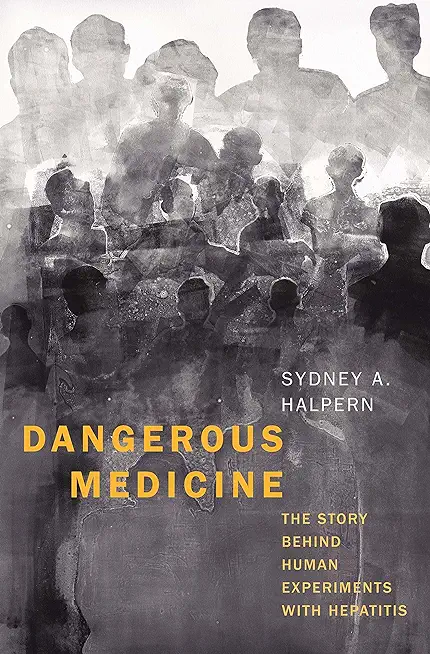
Halpern, Sydney A.
product information
description
8The untold history of America's mid-twentieth-century program of hepatitis infection research, its scientists' aspirations, and the damage the project caused human subjects "Sydney Halpern has written a compelling, if unsettling, history of hepatitis research during World War II and the Cold War. It will become a must-read for anyone interested in bioethics and medical history."--Susan E. Lederer, author of Subjected to Science and Flesh and Blood From 1942 through 1972, American biomedical researchers deliberately infected people with hepatitis. Government-sponsored researchers were attempting to discover the basic features of the disease and the viruses causing it, and to develop interventions that would quell recurring outbreaks. Drawing from extensive archival research and in-person interviews, Sydney Halpern traces the hepatitis program from its origins in World War II through its expansion during the initial Cold War years, to its demise in the early 1970s amid an outcry over research abuse. The subjects in hepatitis studies were members of stigmatized groups--conscientious objectors, prison inmates, the mentally ill, and developmentally disabled adults and children. The book reveals how researchers invoked military and scientific imperatives and the rhetoric of a common good to win support for the experiments and access to recruits. Halpern examines the participants' long-term health consequences and raises troubling questions about hazardous human experiments aimed at controlling today's epidemic diseases.
member goods
No member items were found under this heading.
listens & views

STONEWALL JACKSON & SUPER FRIENDS ...
by STONEWALL JACKSON AND SUPER FRIENDS / VAR
COMPACT DISCout of stock
$25.49
Return Policy
All sales are final
Shipping
No special shipping considerations available.
Shipping fees determined at checkout.






